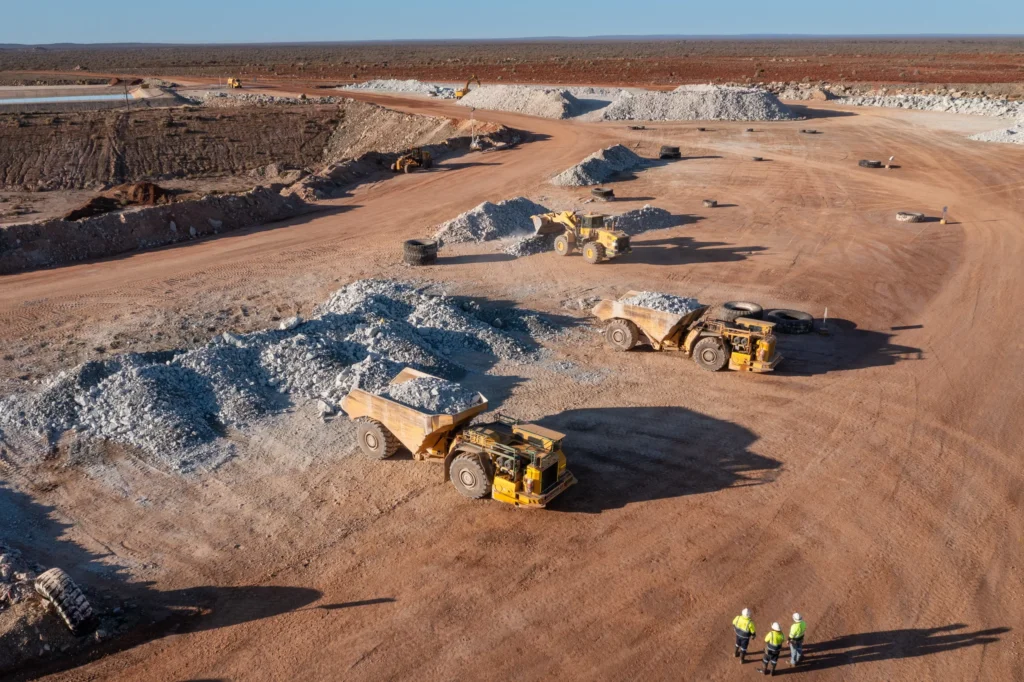July 2024 update: In a statement, BHP has since suspended its Western Australian Nickel operations until February 2027. This includes its Nickel West operations and the West Musgrave project.
Citing a mineral oversupply in the global nickel market and falling nickel prices, the company states that this will be a temporary suspension. During the period, the company will invest $450 million each year to support a potential re-start of Western Australia Nickel.
This decision will directly affect 1,600 frontline workers. According to BHP, these employees will be offered another role within the company or a choice of redundancy.
Earlier this year, BHP announced that it had plans to shut down its Nickel West operations.
Citing the rising cost of nickel due to inflation and current market conditions, BHP said it was writing down its assets in Western Australia by around $5.4 billion.
BHP said in a statement: “As disclosed in the January 2024 Operational Review, the nickel industry is facing challenges and there has been a sharp fall in nickel prices.
“Due to the deterioration in the short-term and medium-term outlook for nickel, BHP has lowered its nickel price assumptions.
“In addition, capital costs for Western Australia Nickel have increased due to inflation. BHP has undertaken a carrying value assessment of Western Australia Nickel having regard to these factors and will recognise an impairment as at 31 December 2023.”
Nikel West’s possible closure comes after another nickel mine pause by BHP. In January, the company announced that it would pause part of its Kambalda nickel processing operations in Western Australia. This is following its supplier Wyloo’s decision to cease its operations in the area.
According to BHP’s CEO Mike West, the company is currently in talks about its nickel plans, and the future of Nickel West.
“This is an uncertain time for the Western Australia nickel industry, and we are taking action to address the current market conditions.
“We are reducing operating costs at Western Australia Nickel and reviewing our capital plans for Nickel West and West Musgrave.” West said.
BHP’s EBITDA (earnings before interest, taxes, depreciation, and amortisation) is currently recorded at about negative $US0.2 billion for its WA nickel business in the first half of the 2023–24 financial year.
3,000 jobs and billions of dollars on the line
Western Australia’s premier, Roger Cook, is said to provide royalty relief for nickel miners, claiming that this is a significant issue for governments of all levels. The news has threatened to put over 3,000 jobs on hold and incur billions of dollars in losses by BHP.
“This is not a cyclical issue, this is a significant structural disruption to the industry, so it not only needs the state government, [but] governments at all levels to do the heavy lifting to make sure that we can assist the industry deal with these global trends,”
“I think we should all be worried about the future of our nickel industry off the back of BHP’s announcements today,” said Cook.
Recent news states that the Albanese government aims to accelerate tax credits to lithium miners if the price of lithium continues to fall.
“We are looking towards smart, targeted, time-limited support. This is a short-term issue for what is in the long term, a very critical industry for Australia,” Mr Albanese told reporters in Perth.
“Nickel will be a critical mineral going forward. It’s critical for batteries and for other sources as the global economy shifts, as we are seeing, to clean energy.”
Just one year ago, nickel was classified as a critical mineral by the Federal Government, a move that was deemed to help the industry and the country’s sustainable energy solutions.
Nickel is a popular mineral used in batteries for electric vehicles, and with its ‘critical’ classification, operators will have access to minerals-related grants and financing under the $4 billion Critical Minerals Facility.
What’s next for the industry?
The nickel industry is said to face a tumultuous time ahead, with a possibility of several company closures. Mining companies will need to reassess and consolidate their assets to meet the lowering nickel demand.
Time sensitivity is crucial here, and we’ve seen many other smaller mining companies make major changes in light of recent low nickel prices. For example, Chalice Mining has made announcements on scaling back its expenditure by 40%, while First Quantum Minerals has also scaled back processing at its nickel mine in WA.
Such actions are necessary to ensure bigger losses are not incurred in the future – agility and flexibility are required.
Mining companies with nickel production should continue to advocate for sustainable and ethical ways of mining said mineral. Global nickel prices have slummed primarily due to an oversupply from Indonesia, where Chinese producers typically dominate the market.
However, this production of a weaker-grade ore is not sustainable for the environment in the long run. Mining companies should continue their efforts on quality instead of dollar cost and stay competitive through environmental responsibility.
Olvera Advisors helps businesses stay ahead in a dynamic environment with bespoke restructuring solutions. Explore our blog for more insights on navigating the financial complexities of this changing industry.
References:
- Blindsided: The crash that rocked boardrooms and Australia’s wealthy investors
- BHP nickel assets to incur impairment
- BHP shuts down WA nickel processing plant
- BHP hit in $5.4b nickel wipeout, WA plans royalty relief
- Australia classifies nickel as critical mineral amid industry crisis
- Labor plans tax credits to help nickel miners




